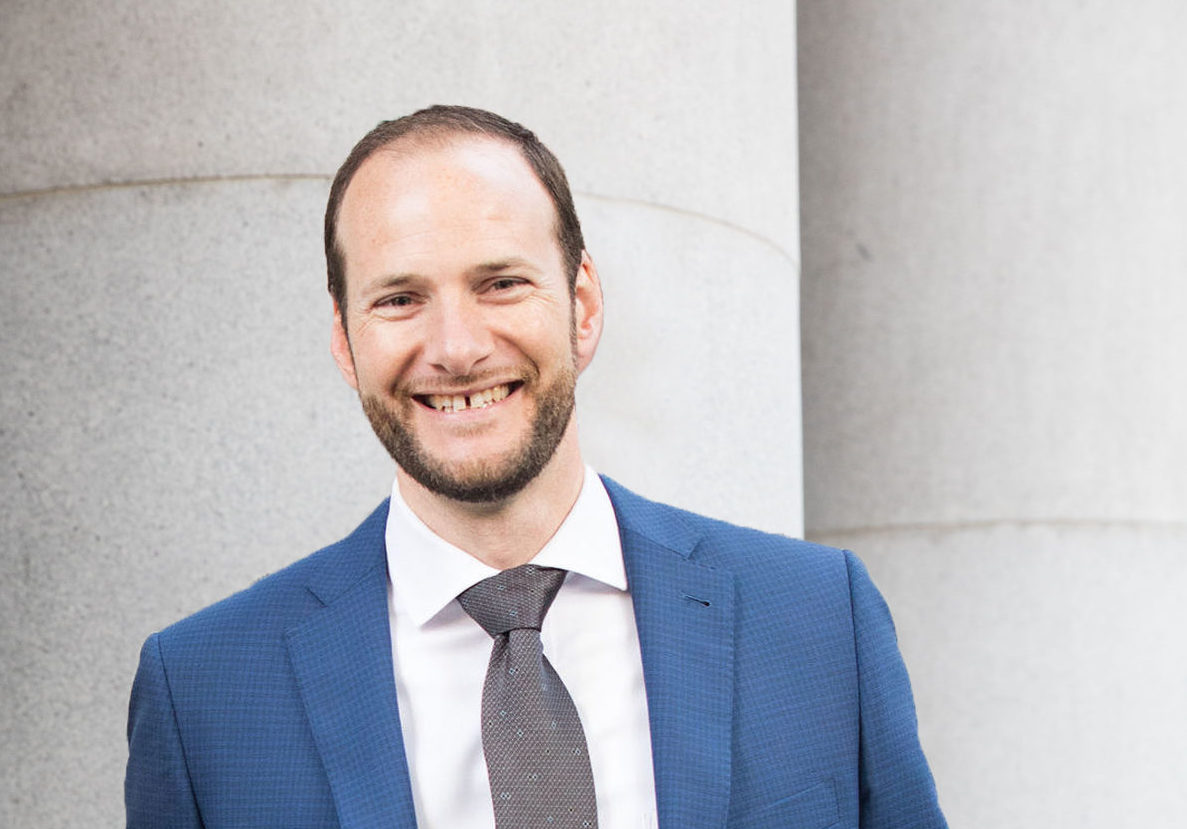San Francisco District Attorney Chesa Boudin held a news conference Friday in San Francisco’s Chinatown district to discuss “drive-by” ADA lawsuits.
Boudin used the occasion to talk about what he called the “historic” lawsuit that his office filed on April 11 against the San Diego law firm Potter Hardy LLP for allegedly bringing fraudulent and deceitful litigation under the Americans With Disabilities Act.
The civil lawsuit, filed jointly with the district attorney of Los Angeles, accuses the San Diego law firm of knowingly using false statements from their clients to end-run California legislation that was enacted to discourage serial ADA lawsuits by what the legislature termed “high frequency litigants.”
The suit requests San Francisco Superior Court to enjoin the law firm from further violations of California’s unfair competition law and seeks an order requiring the firm to pay back the money it obtained from thousands of settlements with California small business owners over the last four years.
Boudin emphasized that the suit not only named the law firm but also many of its attorneys, including name partners Mark Potter and Russell Handy.
That way, Boudin said, if the firm were not able to pay a judgment, the suit could continue against the individual attorneys.
Citing coverage by Bay City News Foundation that showed a sharp drop-off in new ADA cases since the April 11 filing, Boudin said that the lawsuit is already making a difference. The Potter Handy firm had been filing just under three lawsuits a day in the Bay Area on average in 2021 before the district attorneys’ suit. In the 25 days thereafter, according to the Bay City News analysis, only three new ADA cases have been filed in the Bay Area by the law firm.
Boudin said that the investigation that led to the suit is not finished and promised that his office was “ready, willing and able” to take action against others who seek “to abuse the Americans with Disabilities Act” by filing frivolous law suits.
Boudin’s press conference came nine months after a July 2021 news conference that Boudin held, also in Chinatown, to discuss lawsuits under the ADA. The context at that time was that Chinatown had been hit hard by the pandemic. The tourist business was dead and the 2021 Chinese New Year Parade had been canceled. Then in the spring of 2021, just as pandemic restrictions started to ease, a wave of ADA lawsuits hit Chinatown landlords and tenants.
The lawsuits caused tremendous anxiety and stress in the community, according to Chyanne Chen, a consultant engaged by the Chinese Chamber of Commerce to help coordinate a response.
“It was not one or two. It’s everyone, including mom and pop shops,” Chen said. Altogether, she thinks there were more than a hundred suits.
“Chinatown merchants were scared,” she said, “because they don’t know the legal system. They don’t know how to read those letters. Language barriers, cultural barriers … So it was a lot of frustration, lots of anger, lots of moments of tears … Many merchants couldn’t go to sleep. It was so stressed out.”

The Chamber formed an ADA Litigation Defense Fund and recruited pro bono legal assistance to help resolve more than 30 of the cases. They also organized educational sessions — more than 80 of them — to help merchants understand the ADA and to identify areas where they could be vulnerable to future claims if they did not remedy accessibility issues.
Chen said that Chinatown’s merchants want to fix accessibility issues because “we want people to come and shop in Chinatown, including people with disabilities. We want customers … We want people to come and shop and consume and also see our historical places.”
At the July 2021 news conference, Boudin announced that he would launch an investigation into the Chinatown ADA filings.
“We will not tolerate fraud or abuse of legal process,” Boudin said. “We will stand with our small businesses.”
The lawsuit Boudin filed last month was an outgrowth of the investigation launched in 2021.
In a recent development first reported by Bay City News, a federal judge in San Francisco on Thursday found that the testimony of one of Potter Handy’s ADA clients about his standing to sue in federal court was “not credible.”
Based on that finding, the court dismissed the plaintiff’s complaint.
Shortly after Friday’s news conference, Boudin’s office issued a statement on the dismissal, saying, “Our complaint alleges that Potter Handy is engaged in a fraudulent scheme that abuses the intent and purpose of the Americans with Disabilities Act.” The statement went on to say that “We are not surprised that the judge found the Potter Handy plaintiff ‘not credible’ for the same reasons we assert in our suit … We look forward to our complaint being litigated so that we can prevent any future victims of Potter Handy’s scheme and those already harmed by Potter Handy can get relief.”
Potter Handy has not yet filed a response to the district attorney’s lawsuit. However, in April, shortly after it was filed, Dennis Price, one of the firm’s partners, issued a statement expressing concern about the motivation of the district attorneys. Price said that the district attorneys were both facing recall threats “and are filing these claims in order to generate support.”
